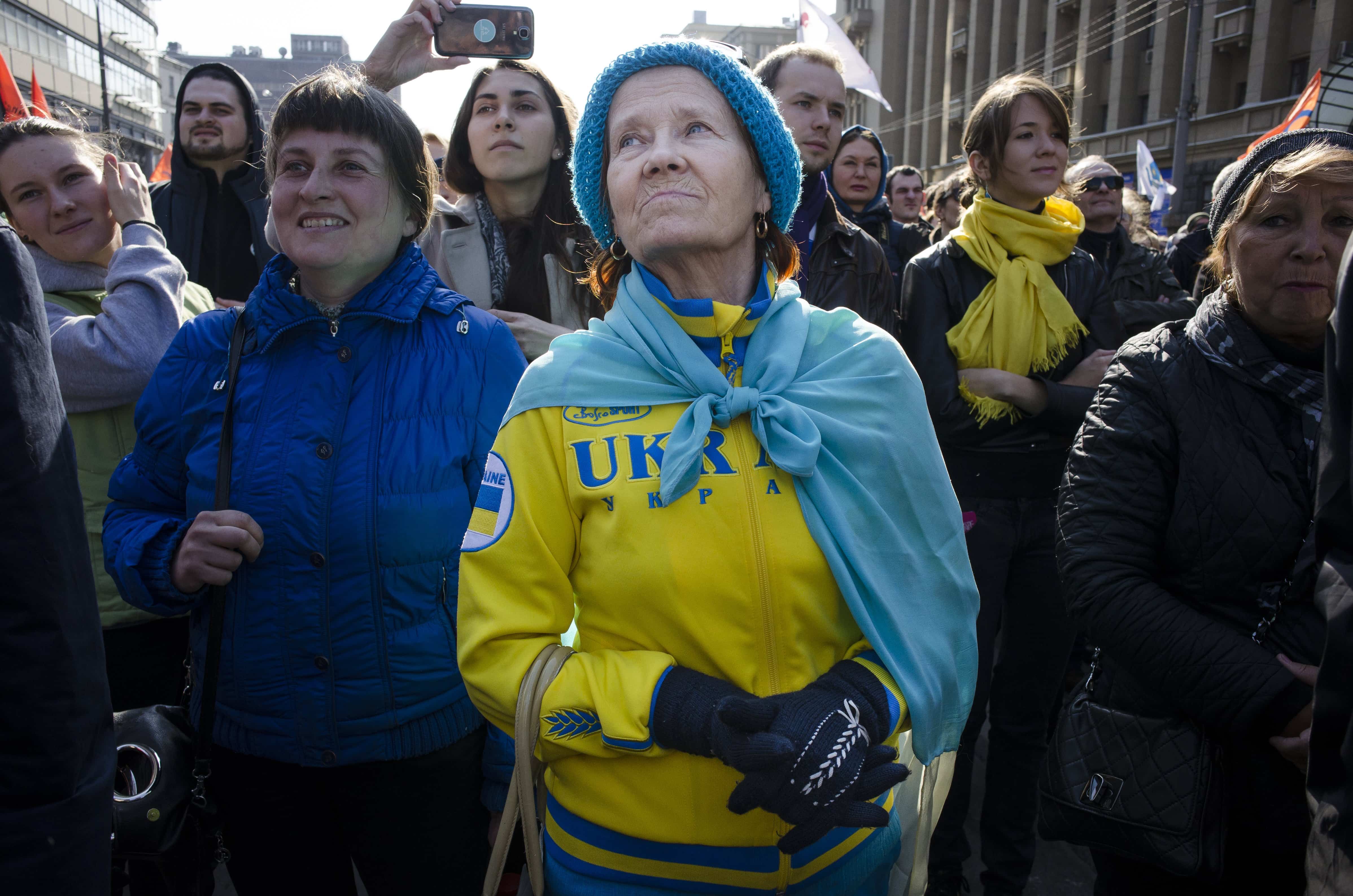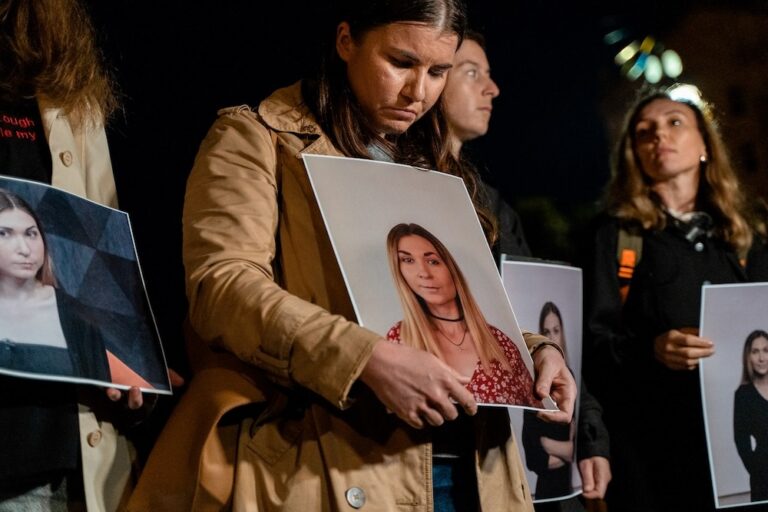Protesters expressed frustration and disappointment at the suppression of dissenting voices in Russia, as well as anxiety that recent events signal a return to "the country’s Communist totalitarian past."
By Alexandra Zakreski
On Sunday, April 13, 2014, nearly 5000 protesters gathered in Moscow to condemn the recent crackdown on press freedom in Russia. In the weeks following the country’s annexation of Crimea, President Vladimir Putin has been ardently censoring anti-war sentiments, pro-Ukraine statements, and peaceful protests in favour of Ukraine’s territorial integrity.
Protesters expressed frustration and disappointment at the suppression of dissenting voices in Russia, as well as anxiety that recent events signal a return to “the country’s Communist totalitarian past.” This is confirmed by reports from Human Rights Watch, as Russia Program Director and Senior Researcher Tanya Lokshina has witnessed “anti-war protesters [subjected] to arbitrary detention, harassment, intimidation, and even physical attacks.”
While the Kremlin denies accusations of censorship, recent events indicate that Putin is putting an extreme chill on free expression in the country. Index on Censorship has reported several particularly egregious free expression violations in recent weeks. Professor Andrei Zubov was dismissed by the Moscow Institute for International Relations after he compared Putin’s activities in Crimea to Hitler’s forcible annexation of Austria. At the same time, the Kremlin has taken an independent television station off the air and replaced the editor of a popular independent Russian Internet news website Lenta.ru with a more pro-Putin alternative. These events stand out against more broad-based digital censorship, as authorities have been systematically blocking access to blogs and websites operated by opposition activists.
Sunday’s protest also follows the imposition of a law which allows the judiciary to issue orders blocking access to websites that publicize “unauthorized demonstrations.” Additionally, several amendments to the law on public gatherings were introduced to parliament on March 31, 2014 and they pose a sizable threat to freedom of assembly. These draft amendments would increase the fines and length of detention applicable to those found guilty of organizing and/or participating in an unauthorized protest. The most disturbing is the proposed amendment that would institute fines of up to one million rubles or a prison sentence of five years for individuals found guilty of organizing more than two unauthorized demonstrations within a 180 day period.
Putin’s polling numbers are higher (just over 80%) than they’ve been in a long time, as the country rallies under the flag of nationalism and geopolitical ambition. However, this relative unity has come at the expense of critical voices in Russia, and some worry that “the Russian public are not getting the full picture about their leaders international transgressions.”
A limited flow of information creates a misinformed public, and thus less fertile ground for flourishing public discourse. If this is evidence of a much anticipated “post-Sochi crackdown,” as suggested by Human Rights Watch’s Europe and Central Asia Director, Hugh Williamson, it paints an incredibly bleak portrait of the future of media freedom in Russia.
Alexandra Zakreski is CJFE’s International Programs Assistant.
This article was originally published on CJFE.org on 15 April 2014.



